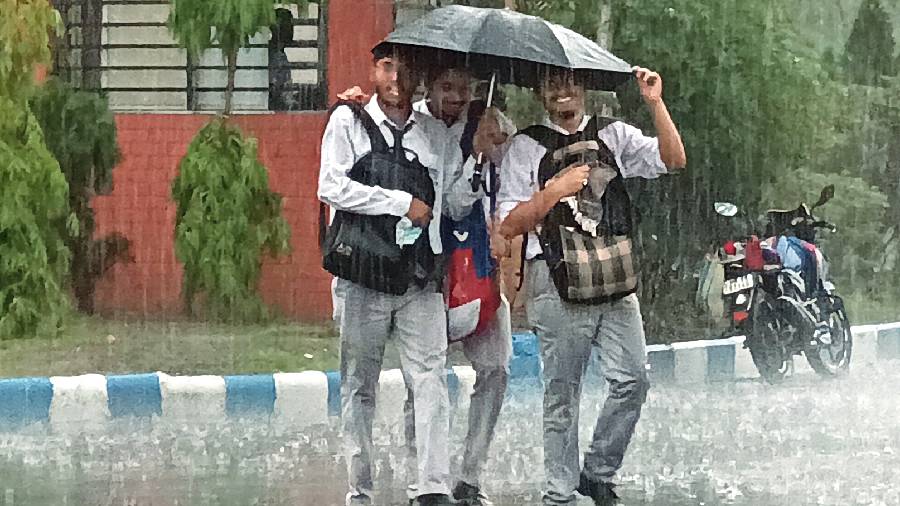The sudden change in weather from “very hot to pleasant” has unleashed a host of infections, causing fever, sore throat and gastro-intestinal problems, doctors said.
Over the past few days, the doctors said, they have been getting an increasing number of patients daily with complaints of fever and sore throat and, at times, gastro-intestinal disorder.
They said most of the patients were suffering from viral infections, and the sudden change in weather was one of the triggers. No patient is insisting on a Covid test, the doctors said.
The clinics and outpatient departments are flooded with patients, including children, suffering from fever and other symptoms of common viral infections.
Doctors said fluctuations in weather conditions are an important cause for an outbreak of viral infections.
“Respiratory viruses become active during weather fluctuations. Also, the normal defence mechanism of the body weakens in such conditions, making us more vulnerable to viral infections,” said Chandramouli Bhattacharya, infectious disease expert at Peerless Hospital.
The symptoms of the viral infections, he said, are not persisting for more than two or three days.
On April 24 and 25, the Celsius was close to 40 degrees in Kolkata and breached the 40-degree mark in places like Dum Dum and Barrackpore. In several districts, the temperature was above 41 degrees.
The sizzling conditions prompted the Met office to declare heatwave in south Bengal districts and “heatwave-like conditions” in Kolkata.
The first proper thunderstorm hit the city on April 30, breaking a 60-day dry spell. Since then, there have been three more thunderstorms.
The change in conditions have dragged the mercury down. On May 1, the maximum temperature was around 34.5 degrees, a notch below normal.
On May 3, the maximum dropped further to 29.7 degrees. On Thursday, it again climbed to around 36.
“The weather has changed from very hot to pleasant over the last few days,” said critical care expert Amitabha Saha, explaining the sharp rise in common viral infections.
“A few days back, when the weather was extremely hot, people were drinking chilled water and that was mostly causing the symptoms. Also, many were suffering from mild heat strokes. It has become cooler but still I am getting patients with similar symptoms,” said Saha.
Children, too, are being affected in large numbers by the fluctuating weather conditions, said doctors.
“Of the children coming to our clinics, apart from those coming for regular immunisation programmes, 70 per cent are suffering from fever, cough and cold,” said Apurba Ghosh, director, Institute of Child Health. “The symptoms, persisting for three to four days, are usually not severe.”
Ghosh said one of the factors for children becoming sick is that they are going to school and are being exposed to the weather conditions.
“Children of all age groups, from those going to play schools to students of senior classes, are becoming sick,” he said.
One reason why patients and family members are not insisting on Covid tests is that cases have dropped significantly, said doctors.
On Thursday, 36 new Covid cases were reported across Bengal, according to the state health department. The numbers had dropped below 20 before climbing up again, but it is still not high enough to cause panic, the doctors said.
“We, too, are not insisting on Covid tests because the symptoms are mostly restricted to that of upper respiratory tract infections and there are no complications,” said a doctor.
